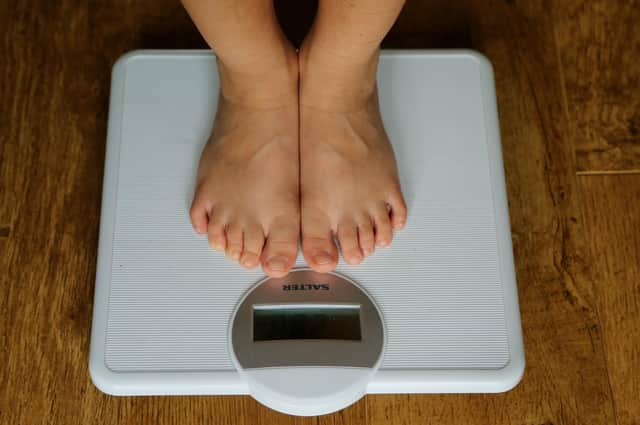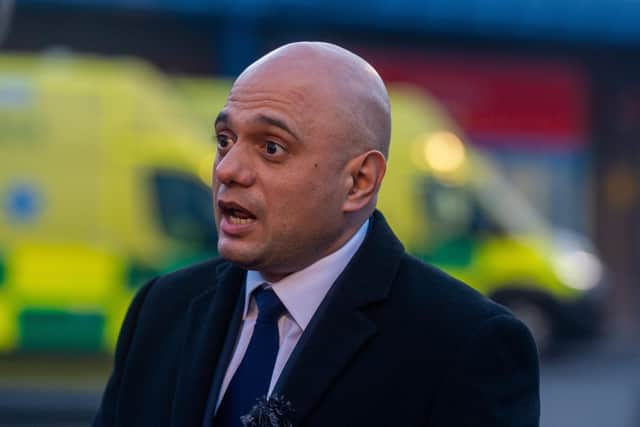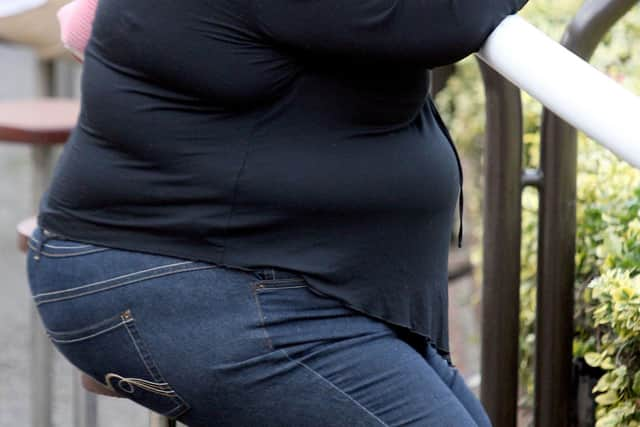Nanny state obesity policies are making cost of living crisis worse for Yorkshire’s families – Jason Reed


It is one of the areas where people will suffer most as bills and inflation climb. According to ONS data, Yorkshire and the Humber holds just 6.9 per cent of the total gross disposable household income in the UK, despite accommodating 8.2 per cent of the population. Poverty is over-represented in Yorkshire.
This year, making ends meet will become tougher than ever for families. Eighty per cent of people in Yorkshire have already seen their energy bills increase and 96 per cent say they are worried about their finances in the months to come.


Advertisement
Hide AdAdvertisement
Hide AdThe cost-of-living crisis will disproportionately affect those who struggle to pay their bills anyway. Struggling households are badly in need of government support – the last thing they need is new unavoidable expenditure to worry about.
But the Government has its priorities all wrong. Incredibly, despite this ongoing crisis, it is more concerned with food being healthy than affordable.
Health Secretary Sajid Javid, who visited Doncaster Royal Infirmary on Tuesday, has reaffirmed his commitment to the Health and Care Bill, which contains a raft of new interventionist policies such as cracking down on promotional offers like ‘buy one get one free’ on unhealthy foods in shops.
The nanny state won’t help Brits slim down, but it will make the cost-of-living crisis worse. Researchers at the Food and Drink Federation predict the new regulations could add an extra £160 to families’ annual shopping bills (on top of inflation, higher energy bills and various other costs.) Once again, the poorest households will suffer most of all because they more often rely on promotions like ‘three for two’ when they shop to make ends meet.


Advertisement
Hide AdAdvertisement
Hide AdThe Government ought not to concern itself with our dietary choices at all, especially when it is led by a man who stood for the leadership of his party on a proud platform of rolling back “the continuing creep of the nanny state”.
But if the state must take action on obesity, it could do so in a way that does not involve bringing in new taxes and regulations which will make our lives more difficult and expensive, especially as we stand on the brink of a cost-of-living crisis.
As attention on obesity rates has gradually risen, so the free market has provided. There has been a flood of exciting and pioneering innovations in this area. For instance, the NHS recently approved the use of semaglutide, a weight loss drug which saw patients’ weight fall by 12 per cent after a year of weekly injections.
“I have spent the last 20 years doing obesity research,” said UCL professor Rachel Batterham, one of the scientists involved in the study which confirmed the benefits of semaglutide. “Up until now, we’ve not had an effective treatment for obesity apart from bariatric surgery.”
Advertisement
Hide AdAdvertisement
Hide AdAs well as medical steps forward, there are a whole host of nudge-style policies we could try before resorting to the last-ditch tax-and-ban course of action. For instance, a change as simple as supermarkets voluntarily removing sweets from the tills to stop last-minute impulse buys has been shown to reduce chocolate and crisp sales by a fifth.
Other more creative initiatives can make a big difference too. In a study in the US, researchers were able to increase sales of fruits and vegetables in a selection of stores by 100 per cent by simply adding a line of yellow tape down the middle of the shopping trolleys along with labels instructing customers to place fruit and veg in one section of the trolley and everything else in the other.
An Icelandic supermarket once launched a joint campaign with LazyTown, a children’s TV programme which stars a fitness-obsessed superhero and refers to fruit and veg as ‘sports candy’. Merely by marketing directly to children and rebranding its own healthy products as ‘sports candy’, the supermarket was able to increase sales of those items by 22 per cent. In the years since, Iceland is one of the only countries in the world which has seen a sustained drop in childhood obesity rates.
There are a thousand better ways to go about addressing obesity than blanket bans on advertising and special offers, especially when those policies will worsen an already catastrophic cost-of-living crisis.
Advertisement
Hide AdAdvertisement
Hide AdFor the sake of Yorkshire, and indeed the rest of the country, the Government must reconsider their anti-obesity measures. The nanny state is not the answer to our public health issues.
Jason Reed is the UK Lead at Young Voices and a political commentator. Follow him on Twitter @JasonReed624
Support The Yorkshire Post and become a subscriber today. Your subscription will help us to continue to bring quality news to the people of Yorkshire. In return, you’ll see fewer ads on site, get free access to our app, receive exclusive members-only offers and access to all premium content and columns. Click here to subscribe.
Comment Guidelines
National World encourages reader discussion on our stories. User feedback, insights and back-and-forth exchanges add a rich layer of context to reporting. Please review our Community Guidelines before commenting.